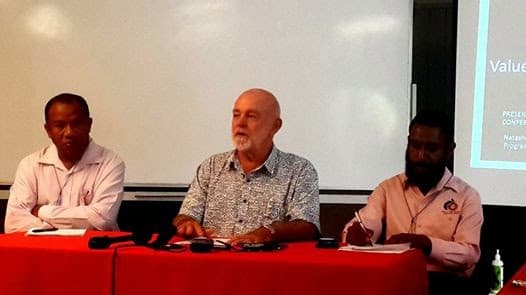TIPNG Reveals Data Collection On Corruption

Source: PNG Facts
Transparency International Papua New Guina (TIPNG) has revealed that INDIVIDUAL CITIZENS who entertain CORRUPT practises within their officers and schools remain the BIGGEST impediments towards DEVELOPMENT at all levels.
This simply means that apart from being the biggest complainant of corruption at all levels, we ourselves are STILL ENTERTAINING the act by DOING NOTHING to STOP it.
TIPNG’s Advocacy and Legal Advice Centre received 551 complaints between 2009-2014 and have made referrals based on evidence to relevant authorities that can be able to investigate and prosecute these individuals like Police and the Ombudsman Commission.
Allegations of these complaints to the Legal desk have also came from Public Institutions, Political Parties, Public Companies, Civil Society Organisations and even churches.
Chairman, Lawrence Stephens said CORRUPTION in the Banking and Finance Sector registered the 3rd Highest complaints, people are complaining that the corrupt turn to banks and other financial institutions to legitimise their money, bringing them into the formal financial system. He says one step to STOP GRAND CORRUPTION is ensuring that the CORRUPT do not have a safe HAVEN to hide their ILL GOTTEN funds.
TIPNG states that financial institutions can prevent these flows from ever entering the system. They can do this by effectively identifying perspective investors and clients as “Politically Exposed Persons” or PEP.
PEP’s are individuals who are or have been entrusted with high level position in public service. These often include heads of state and senior politicans as well as high ranking officials from government, the military and state owned companies. The PEP classification may extend from person to his or her family members and close associates. By flagging potential PEP’s banks are then able to do additional checks on the source of funds and to ensure that they are FREE of corruption.
“While banks and other financial intermediaries currently have a duty to take such a step, they often fail to fulfil it. This lack of compliance must end. Banks and other key actors, from lawyers to accountant, must do their part and comply with due diligence duties on PEP’s. At the same time, regulatory authorities must act to close to the loopholes and to stop banks from serving the corrupt,” emphasised TIPNG.
